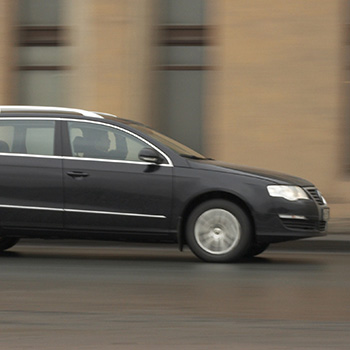Volkswagen Emissions Scandal Summary

History of Volkswagen Scandal
Last December, Volkswagen said that up to 482,000 of its vehicles in America may have been emitting more NOx (nitrogen oxide) than emissions tests reported. Last week, Volkswagen confessed that it might have gotten the number wrong. Now an estimated 11 million Volkswagen vehicles emit 40% more nitrous oxide than the Environmental Protection Agency’s (EPA) standard. Volkswagen hasn’t announced where these newly discovered defective cars are driving, but we know models from 2009 forward may be affected.
What’s Wrong with the Volkswagen Cars
The Environmental Protection Agency (EPA) detected an internal algorithm that allowed Volkswagen’s cars to cheat during inspections. It is unclear how exactly the program works, but we know that affected Volkswagen cars were able to detect when they were being tested (possibly based on certain vibration patterns only occurring during these tests) and produced less than their average emissions during it.
According to an EPA press release, four-cylinder diesel passenger cars (including Jetta, Beetle, Audi A3, Golf, and Passat) had such emission-cheating software.
What This Means For Drivers and the Environment
Drivers of diesel engines expect to have a much better fuel economy than vehicles with petrol engines. Diesel engines also give cars more hauling capacity. On the flip side, diesel cars produce more nitrogen oxide. Governments across the globe have set regulations on how much NOx cars may produce; Paris, for example, has linked increases in NOx to health hazards, smog, acid rain and pollution. As we have now discovered, Volkswagen lied about its NOx emission numbers. Though advertised as environmentally friendly, these cars are, in fact, the opposite.
In short, drivers expecting to save some money on gas while not hurting environment are paying for more gas than advertised while releasing dangerous chemicals into the environment.
Impacts of the Volkswagen Scandal
America, despite being the second-largest car market behind China, only accounts for 6% of Volkswagen unit sales, according to the New York Times. The impact this scandal will have in the United States may not hurt Volkswagen as greatly as the impact it may have in Europe and Russia, which account for 40% of its unit sales.
That being said, this may have inflicted lasting damage to Americans’ perception of German produced cars and of diesel cars, hurting the companies trying to bring that technology to the United States. In America, about 3% of cars are diesel while up to 50% of cars have diesel engines in Europe, according to BBC. Several companies, including Volkswagen, Chevrolet, Mercedes, and BMW are pushing diesel engines in the United State, but this scandal may become a setback for them all.
Cars that may have this emission-cheating program are still being sold in Europe, which has a much less rigorous testing system for emissions. The United States has stopped selling the 2015 models affected by this malfunctioning program. Switzerland may stop selling and ban all Volkswagen vehicles.
What Volkswagen Plans To Do Now
It is unclear yet if this algorithm was created intentionally or with the knowledge of corporate decision makers. This fact could alter what fines the company may face as the issue is investigated. Regardless, the company has already lost 1/3 of its market value and will be removed from Dow Jones Sustainability Indices (DJSI).
On September 23rd, the day after this news leaked, the President of Volkswagen during the incident, Mr. Winterkorn, resigned. Regardless, German prosecutors, due to anonymous complaints, are investigating his involvement.
Germany’s KBA has given the company to October 7th to discover how it plans to lower its cars emission rates to the legal level. On top of that, the United States has 34 federal lawsuits currently filed against the company, and Canada has a few as well. Volkswagen has hired Kirkland & Ellis LLP to defend it.
As of right now, Volkswagen has not set forth a plan addressing the issue, though it plans to take $7.27 billion, roughly half of the company’s yearly average profits, to correct this mistake. The company has said it will ask customers to bring their car in to refit for “non-cheating” software “in the next few days”. However, the Spanish subsidiary SEAT claimed it installed only 700,000 of the defective EA 189 diesel engines.
Just as no one knows how the emission-cheating program works, no knows if 7 billion dollars is really enough to correct this rather large and public mistake or what impact this will have on the company in the future and on diesel engines in America.
Categorized in: Driving, Technology
